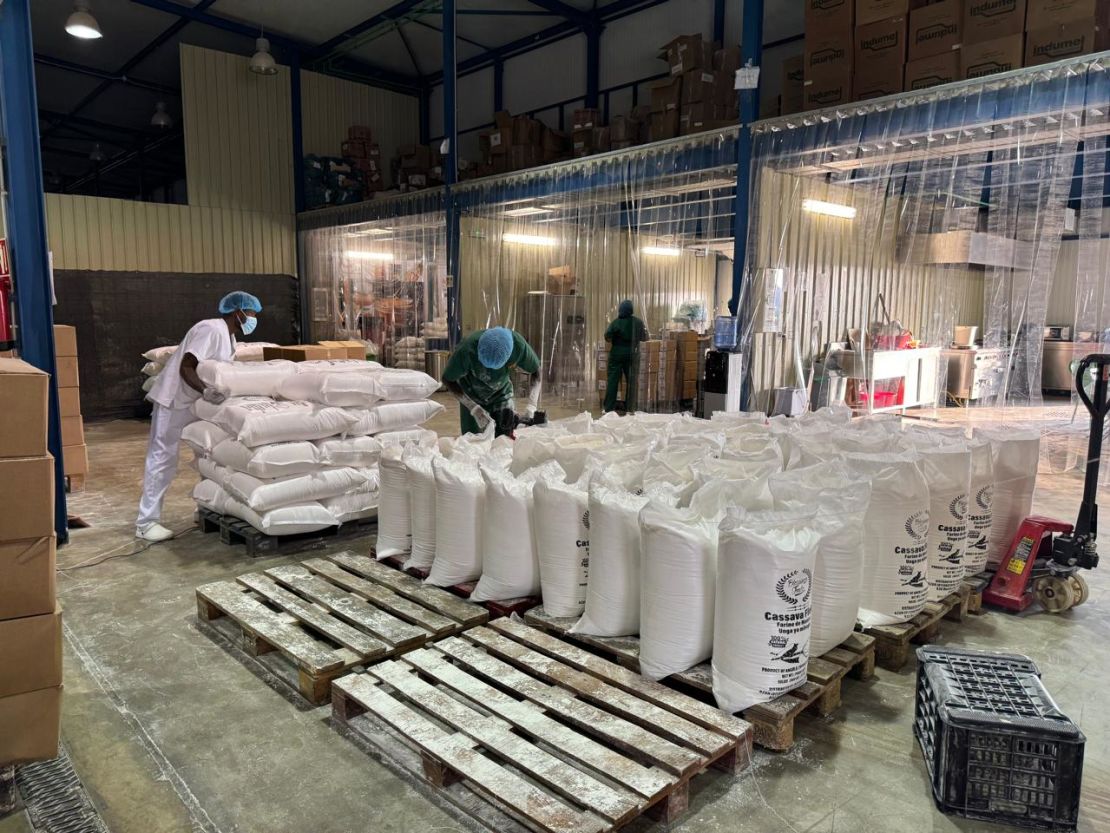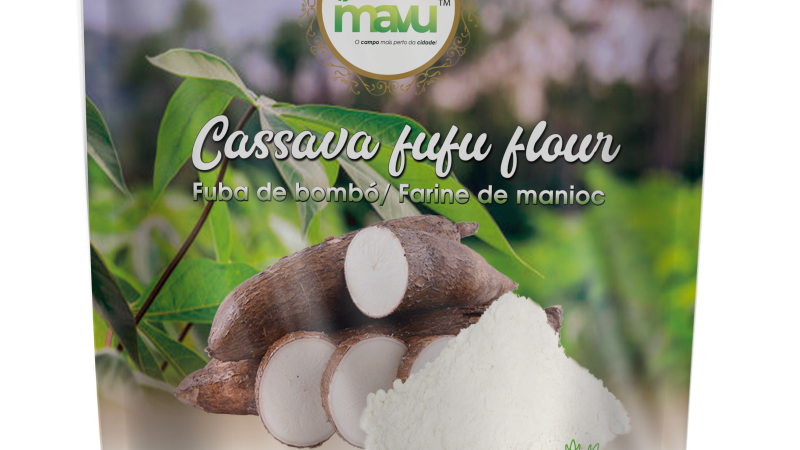CNN
—
The mopane worm – colorful, hairy and nutritious – has many things going for it, but its name is not one of them. Native to woodlands in southern Africa, it is in fact a caterpillar that’s widely eaten in rural areas; and being high in protein and low in fat, it is being pitched as a superfood to overseas markets.
Based in the Angolan capital of Luanda, on Africa’s southwest coast, FoodCare is a dried food manufacturer that processes and packages a range of 25 homegrown foods, including cassava, mushrooms, various fufu (pounded starchy meals) and mopane worms, exporting its products to Europe, North America and South Africa.
The company, which started business in 2020, was founded by Marlene José, just before the Covid-19 pandemic. Despite a challenging first 18 months, it has grown to directly employ 28 people, six part time, and works with a network of suppliers across four northern provinces, Cuanza Norte, Bengo, Uíge and Malanje.
José says cassava, rather than mopane worms, is FoodCare’s biggest seller. A gluten-free alternative to wheat, rye and barley, cassava flour is a major growth business, with a global market valued at $34.3 billion in 2024 and projected to exceed $95.5 billion by 2034, according to one recent market insight report.
She adds that FoodCare has the capacity to process 84 tons of cassava per month, but receives monthly international requests for 700 tons. The company exports 95% of its product, with the remaining 5% sold in Angola to primarily middle and upper-class customers, says José. But abroad it caters to a broader swathe of the African diaspora.

The CEO says that FoodCare has made purposeful steps to make its products as attractive as possible, with distinctive branding and labels translated into four languages. Eventually, she hopes this will encourage more non-Africans to buy her products.
“Many African people think that other nationalities don’t like our food. I think they just don’t know the food because it’s not well packaged,” she said.
“(People) want to have the information: What’s the benefit? What is it used for? If we don’t put the product in presentable packaging with all this information, of course people won’t try it,” she continued.
“Most of (Angola’s) products are organic, 95% of agriculture is family (operated),” José added. “We need to sell the country as a healthy food exporter.”
Angola imports over half of its food and currently only 10% of arable land is cultivated. Seeking to diversify its economy and decrease its reliance on imports, the government is implementing plans to boost its agricultural sector.
But with an economy heavily reliant on oil, dips in global oil prices are among the reasons why Angolans are “living through a financial crisis as we have never seen before,” said José. In 2024, unemployment stood at over 32%, and much higher among those age 15 to 24 years old.
Denise António, resident representative for the UN Development Programme in Angola, explained in an email that Angola’s 27-year civil war, which ended in 2002, “decimated the agricultural infrastructure.”
“Fortunately, revitalizing the agriculture sector is a priority for the country not only for the purpose of diversifying its economy and limiting its dependence on oil, but also a way for unlocking the potential for food security,” she added.
For example, the government’s National Plan to Promote Grain Production (PLANAGRÃO) aims to double production of crops like wheat, rice, soybeans and maize by 2027.
Per 2021 data, António says micro, small and medium enterprises accounted for more than 90% of business in the country. She added that, “the biggest growth opportunities in Angola’s agriculture sector lies in its ability for value addition of its raw material into higher-value goods that will create job opportunities by boosting production.”
In Bengo, FoodCare is running a pilot program that has installed a solar-powered system allowing farmers to dry their cassava harvest on site. That reduces transportation weight, and therefore cost, in FoodCare’s supply chain, while providing product quality assurance, says José.
She says that in the long term, FoodCare is looking to farm cassava, not just process it, and the company is also entering the coffee business, with plans to “reactivate” a network of family-run farms covering 5,000 hectares to grow the crop.
But such expansion does not come cheap, and José says she is seeking investors. “We are looking for $3 million (to invest FoodCare’s operation), but we don’t want to do it alone,” she said. “We don’t need only funding, we need a partner that will bring technology and support.”
José also hopes for domestic policy reforms to make it easier to export goods. But rather than diverting food from the domestic market, she hopes expanding her company will provide more employment locally.
“FoodCare is not (just) a company looking to make profit; we want to also change the mindset in Angola about the quality of food that we eat,” José said. “We (Angolans) still prefer what is imported. We need to value more what is being produced in our country as it is generating jobs and adding value to local products.”

